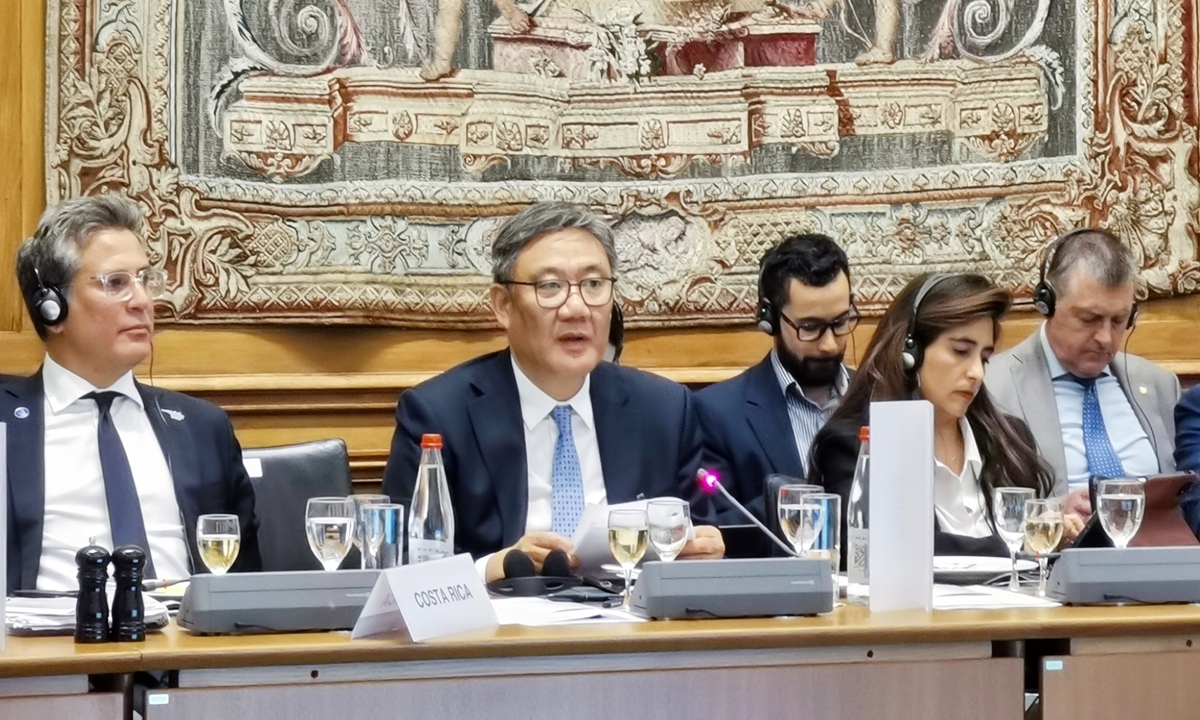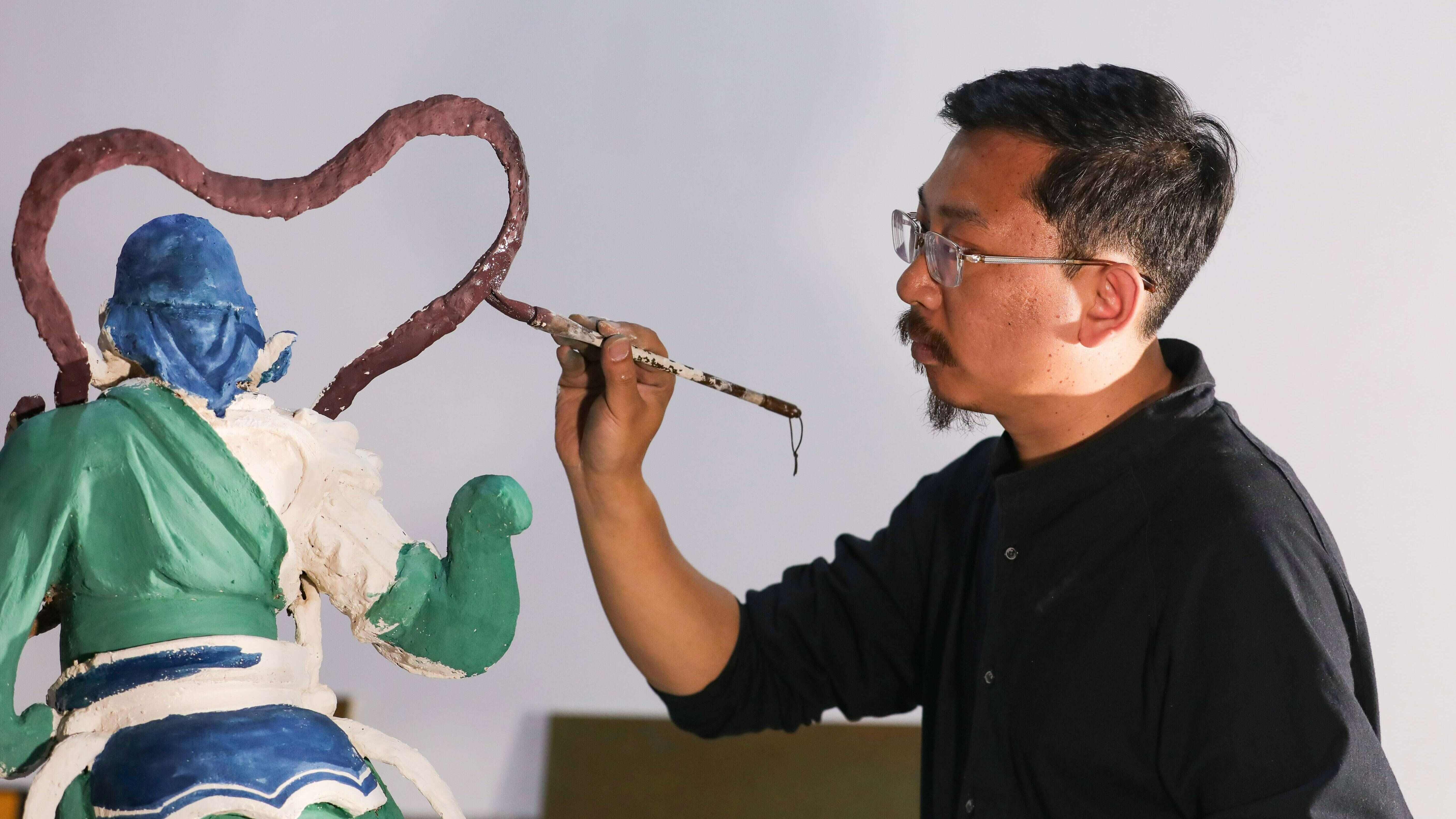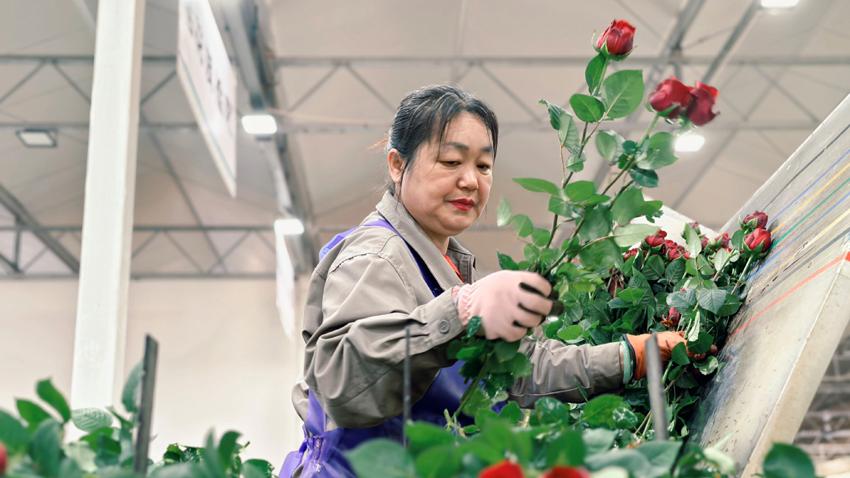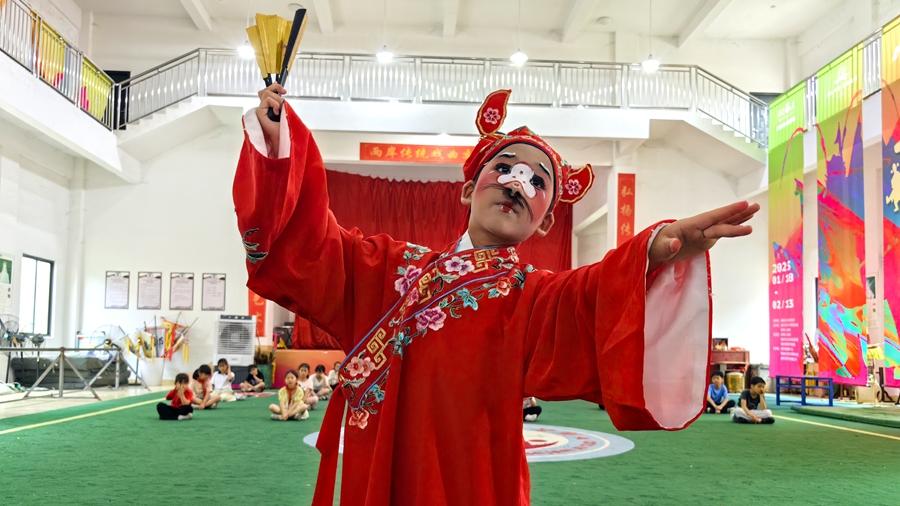China stresses firm support for WTO in Paris as commerce minister urges stronger oversight of unilateral tariffs

Chinese Commerce Minister Wang Wentao attends the WTO ministerial meeting in Paris on June 3, 2025. (Photo/China's Ministry of Commerce's website)
China is willing to work with all parties to safeguard the international economic and trade order and global trade stability, injecting greater certainty into the world economy, Chinese Commerce Minister Wang Wentao said when attending a WTO ministerial meeting in Paris on Tuesday, China's Ministry of Commerce (MOFCOM) said in a statement on Wednesday.
The WTO is a key pillar of multilateralism and an important platform for global economic governance. Unilateral tariff measures by certain members contradict WTO principles and rules, undermining the foundation of the multilateral trading system. There are no winners in a trade war. Unity leads to shared success, and cooperation drives progress, Wang said. He noted that China has already submitted a statement supporting the multilateral trading system under the current situation to the WTO.
Wang emphasized that while the WTO faces challenges, it also presents opportunities, and members should pursue necessary reforms to turn crises into opportunities. He highlighted integrating the Investment Facilitation for Development Agreement and the Agreement on Electronic Commerce into the WTO's legal framework, as well as advancing discussions on artificial intelligence along with trade and the environment, with development as the core agenda. He vowed to address agriculture and food security, while calling for the restoration of the dispute settlement mechanism to strengthen the WTO's authority.
On the sidelines of the meeting, Wang met with ministers from the EU, Canada, Australia, France, and Director-General of the WTO Ngozi Okonjo-Iweala, and briefly exchanged views on important issues in bilateral economic and trade relations and the work of the WTO with ministers from other countries, per the statement.
When meeting with Okonjo-Iweala on Tuesday, Wang stressed that China firmly upholds the multilateral trading system and supports the WTO to play a more important role in global economic governance, while calling on the WTO to strengthen oversight of unilateral tariffs, and provide objective and neutral policy proposals, according to MOFCOM.
"In response to some individual member's arbitrary move of imposing tariffs, the WTO should strengthen oversight of unilateral tariffs, and put forward objective and neutral policy proposals to ensure that relevant members' bilateral trade arrangements comply with WTO rules and avoid harming other members' interests," Wang pointed out.
International trade turbulence is undermining global economic growth, Okonjo-Iweala said, urging all parties to manage bilateral trade conflicts, support the multilateral trading system, promote WTO reforms, and ensure the success of the 14th Ministerial Conference of the WTO, according to a separate MOFCOM statement.
"China is a firm supporter of the multilateral trading system, and it is expected that China will play a greater role in advancing WTO reforms," she said.
Wang meanwhile met with European Trade Commissioner Maros Sefcovic, conducting concentrated, candid and in-depth discussions on urgent and important topics surrounding China-EU economic and trade cooperation.
When meeting with French Minister Delegate for Foreign Trade Laurent Saint-Martin on Wednesday, Wang also noted that China is willing to work with France and the EU to address global uncertainties with the stability of China-EU cooperation, and set a benchmark for other countries.
During separate meetings with trade officials from Canada and Australia, Wang stressed that unilateralism and protectionism pose severe challenges to the current international trade order, and they should strengthen multilateral and regional coordination and cooperation and firmly uphold the WTO-centered multilateral trading system.
Wang stressed that China remains firmly committed to expanding opening-up, and it welcomes foreign enterprises to explore opportunities in the Chinese market.
China's steadfast call for upholding the WTO-centered multilateral trading system not only safeguards its own legitimate rights and interests but also bolsters the international community's confidence and resolve in safeguarding common interests, Huo Jianguo, a vice chairman of the China Society for World Trade Organization Studies in Beijing, told the Global Times on Wednesday.
"The US abuse of tariffs seriously disrupts international trade and hinders the recovery of many economies," Huo said.
Global GDP growth is projected to slow from 3.3 percent in 2024 to 2.9 percent this year and next year, the Organisation for Economic Co-operation and Development said on Tuesday, citing a technical assumption that existing tariff rates as of mid-May will remain in place, despite ongoing legal disputes.
The organization warned in its latest Economic Outlook that if current trends persist - such as rising trade barriers, tighter financial conditions, weakening business and consumer confidence and increased policy uncertainty - they could significantly undermine global growth prospects.
US tariffs on steel and aluminum imports doubled to 50 percent on Wednesday, as the US government continued to ratchet up levies on foreign metals that the administration claims will help revitalize American steel mills and aluminum smelters, The New York Times reported.
"The unilateral protectionism of the US undermines the multilateral trading system and continuously erodes the authority of the WTO and other international organizations, posing challenges to global trade rules and order. Meanwhile, the climate for international cooperation has deteriorated, increasing the difficulty of resolving global issues," Wan Zhe, an economist and professor at the Belt and Road School of Beijing Normal University, told the Global Times on Wednesday.
If the US continues to wield its "tariff stick," its trading partners may resort to stronger retaliatory measures. Such tit-for-tat retaliation could deteriorate into a "tariff escalation" and further weaken multilateral cooperation, leading to higher global trade barriers, a significant contraction in international trade volumes, and instability in global industrial and supply chains, Wan said.
"In today's deeply interconnected world, clinging to protectionism and isolationism is not a solution. Unilateral tariff barriers will ultimately fail to resolve challenges. Only through multilateral consultations and rule-based restructuring can true trade fairness and win-win outcomes be achieved," she said.
Photos
Related Stories
- US trade court blocks Trump administration's tariffs imposed in early April
- US seriously undermines economic talks with China
- China, Australia should jointly safeguard WTO-based multilateral trading system amid global headwinds: Chinese commerce minister
- Tariffs threaten global green push
- New steel, aluminum tariffs stoke global uncertainty
Copyright © 2025 People's Daily Online. All Rights Reserved.









